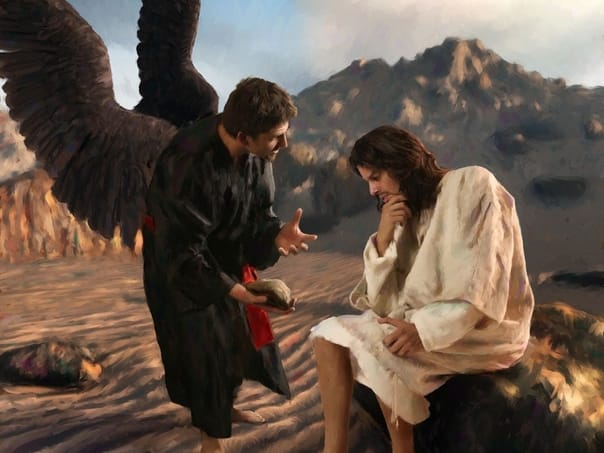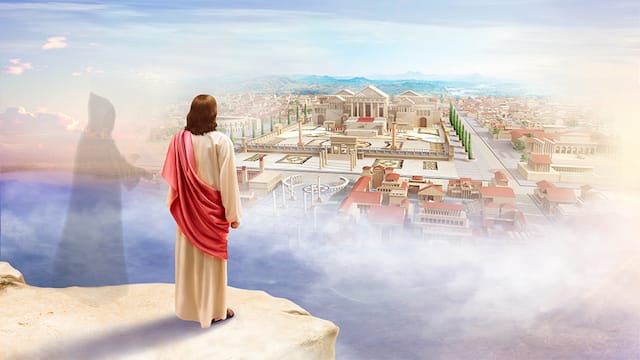Back to: CHRISTIAN RELIGIOUS STUDIES JSS2
Welcome to Class !!
We are eager to have you join us !!
In today’s Christian Religious Studies class, We will be discussing The Temptation of Jesus. We hope you enjoy the class!

The Temptation of Jesus (Mathew 4:1-11, Mark 1: 12-13, Luke 4: 1-13)
Temptation is the process whereby we are enticed, convinced or persuaded to do what we are not supposed to do. Examples of such things are: breaking the laws of God, disobeying our parents, teachers, elders etc.
After the baptism of Jesus, He was led into the wilderness by the Holy Spirit to be tempted by the devil. Jesus fasted for forty days and forty nights while He prayed and meditated on His future work as the Messiah and saviour of mankind. At the end of the fasting, the devil came and tempted Him three times.
In the first temptation, the devil said to Jesus “If you are the Son of God, command these stones to become loaves of bread”, Jesus replied that “it is written, man shall not live by bread alone, but by every word that proceed from the mouth of God.”

In the second temptation, the devil took Him to the pinnacle of the temple in Jerusalem and said: “if you are the Son of God, throw yourself down, for it is written, He will give His angels charge over you, and on their hands, they will bear you up, lest you strike your foot against a stone”. Jesus replied that it is written that “you shall not tempt the Lord your God”.
In the third temptation, he took Jesus to a high mountain and showed Him all the kingdoms of the world and the glory of them. “I will give it all to you,” he said, “if you will only kneel down and worship me.” “Get out of here, Satan,” Jesus told him. “For the Scriptures say, ‘You must worship the Lord your God; serve only him.'”
The Significance of the Temptation of Jesus
The Jews had three wrong ideas about what the Messiah and Saviour is to do. He was wrongly seen as economic Messiah, wonder-working or Miracle Messiah and political Messiah.
The first temptation to turn stone into bread was to make Jesus an economic Messiah. Jesus rejected this because he has come not only for our material comfort but more especially for our spiritual salvation
The second temptation was for Him to appear as a wonder-working or Miracle Messiah but Jesus rejected this because it means winning people to God by appealing to their imagination, instead of listening and obeying His teaching which calls for repentance and amendment of life.
The third temptation was for Him to appear as a political Messiah. But Jesus rejected this because He had come to save us from our sins so that we might establish a good relationship with God and with our neighbours.
The devil uses these wrong ideas about the Messiah to tempt Jesus but Jesus was able to overcome the devil because the Holy Spirit was there to guide and give Him strength to reject these wrong ideas.
We have come to the end of this class. We do hope you enjoyed the class?
Should you have any further question, feel free to ask in the comment section below and trust us to respond as soon as possible.
We have come to the end of 1st term. We’ve had a remarkable journey with you and can’t for you to join us in 2nd Term. We are eager to meet you there.


I really like this class notes.ng you guys are doing well and the best if not for you I don’t know what will happen thanks so much
Amazing work, you guys makes teaching interesting and easy